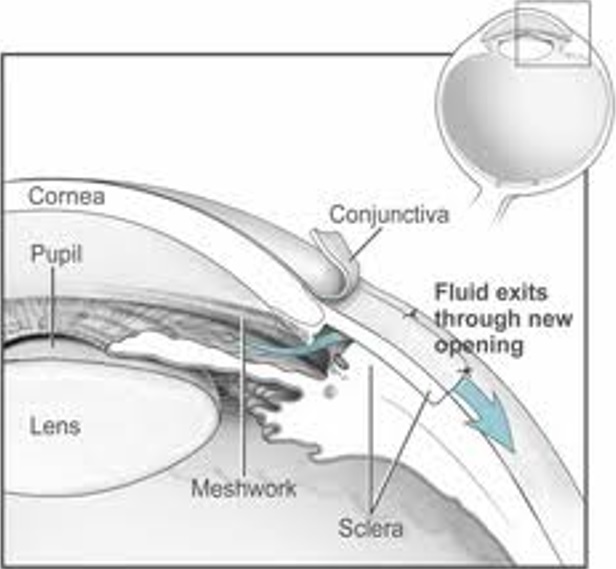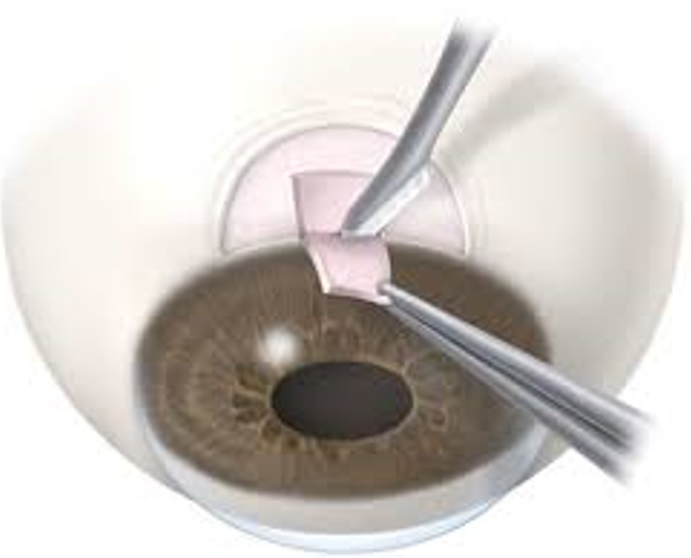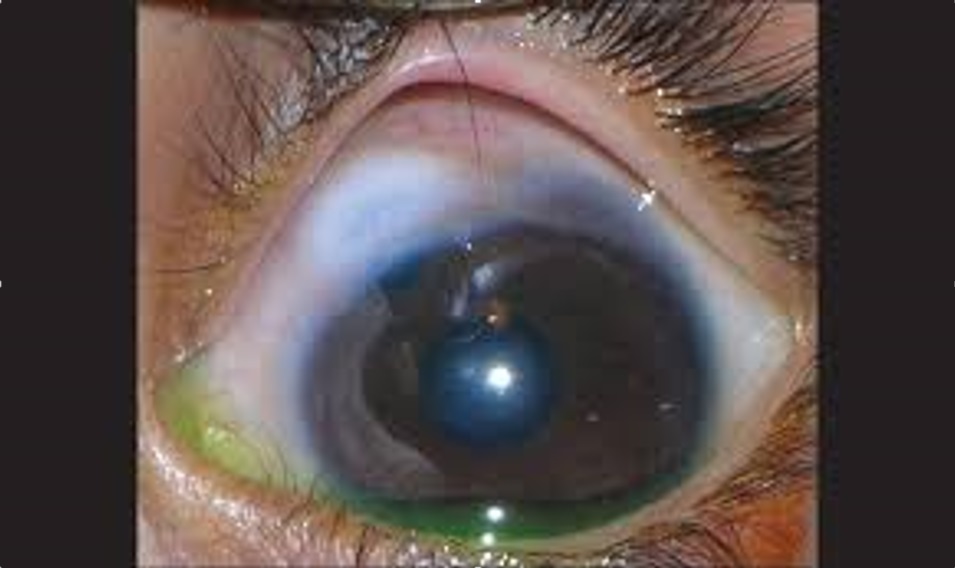Glaucoma is a complicated disease in which damage to the optic nerve leads to progressive, irreversible vision loss. It is the second leading cause of irreversible blindness.
Glaucoma is usually treated with eye drops and or lasers. Most cases can be controlled well with these treatments, thereby preventing further loss of vision. In some circumstances glaucoma filtration surgery known as trabeculectomy is indicated to further prevent progression of the disease.
Trabeculectomy is a surgical procedure to treat glaucoma by lowering the internal pressure of the eyeball. The goal of the surgery is to reduce the intraocular pressure. Trabeculectomy creates a new drainage site to help filter internal fluid from the eye. Instead of going through the normal drainage site of the eye (the trabecular meshwork), the fluid is drained into a new “space” that is created underneath the outer covering (the conjunctiva) of the eye. This will lower the eyeball’s pressure.
Indications
Trabeculectomy is generally recommended for patients with glaucoma that continues to progress despite using maximum medications and/or laser treatments. The decisions vary depending on the type of glaucoma, the stage of glaucoma, as well as other factors. Sometimes this surgery can be combined with cataract surgery.
Contraindication
There is no absolute contraindication for trabeculectomy surgery.
Pre-operative evaluation
- To ensure adequate control of intraocular pressure prior to surgery. This is necessary to minimise surgical complications.
- To ensure stabilisation of general medical illness as surgery is mostly done under general Anaesthesia.
Complications
All eye surgery has some risks. In general, operations are only done when the benefits outweigh the risks. Risks of trabeculectomy include:
- Bleeding,
- Infection,
- Scarring,
- Retinal detachment,
- Droopy eyelid,
- Double vision,
- Loss of vision or loss of the eye (rare complication).
In most cases the complications can be treated and in a small proportion of cases, further surgery may be needed. Very rarely some complications can result in loss of sight. These risks are uncommon, but need to be discussed and informed prior to surgery.
Outcome
Trabeculectomy surgery only lowers the eye pressure. By lowering the eye pressure, the goal is to either stop or slow down vision loss. Any vision that is already lost prior to the surgery, in general, will not return.
The eye drops may need to be instilled for two or three months after the surgery. Some patient may not require any eye drops after that period. Most of the patient may eventually need some glaucoma eye drops to keep the eye pressure under control. Most will require fewer eye drops than before the surgery. The need for eye drops for long-term varies greatly and is determined by the type of glaucoma and the rate of progression of glaucoma.
References
- eyecareamerica.org/eyecare/treatment/glaucoma–filtration/
- www.webmd.com/eye…/trabeculectomy-filtration–surgery-for-glaucoma
- www.ouh.nhs.uk/patient-guide/…/files%5C110705trabeculectomy.pdf
- www.masseyeandear.org › … › Ophthalmology › Glaucoma › Treatment
- emedicine.medscape.com/article/1207755-overview
| Last reviewed | : | 23 August 2019 |
| Writer/Translator | : | Dr. Rosniza bt. Ab. Razak |
| Accreditor | : | Dr. Salmah bt. Othman |
| Reviewer | : | Dr. Rosniza bt. Ab. Razak |










